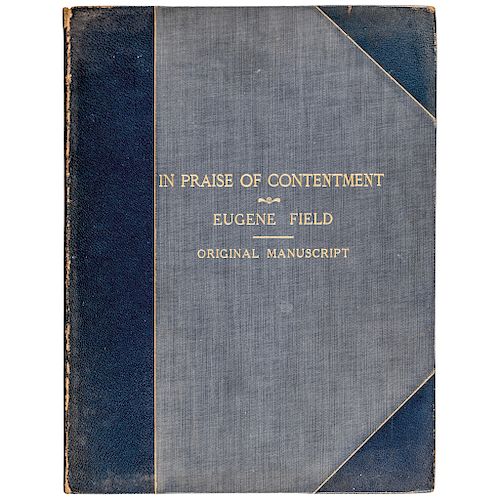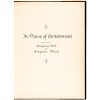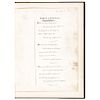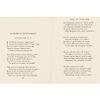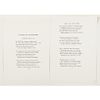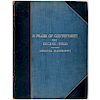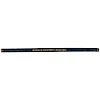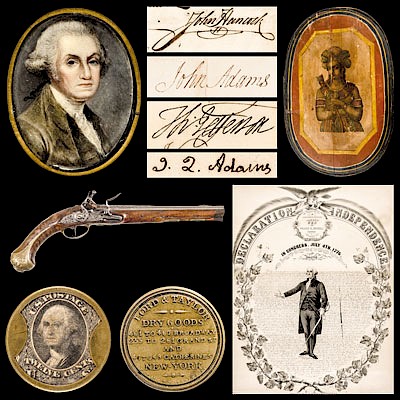American Poet EUGENE FIELD Autograph Manuscript Poem (Not Signed)
Lot 28
Estimate:
$2,200 - $2,800
Absentee vs Live bid
Two ways to bid:
- Leave a max absentee bid and the platform will bid on your behalf up to your maximum bid during the live auction.
- Bid live during the auction and your bids will be submitted real-time to the auctioneer.
Bid Increments
| Price | Bid Increment |
|---|---|
| $0 | $10 |
| $200 | $20 |
| $300 | $25 |
| $500 | $50 |
| $1,000 | $100 |
| $2,000 | $200 |
| $3,000 | $250 |
| $5,000 | $500 |
| $10,000 | $1,000 |
| $20,000 | $2,000 |
| $30,000 | $2,500 |
| $50,000 | $5,000 |
| $100,000 | $10,000 |
| $200,000 | $20,000 |
| $300,000 | $25,000 |
| $500,000 | $50,000 |
About Auction
By Early American History Auctions
Jun 1, 2019
Set Reminder
2019-06-01 12:00:00
2019-06-01 12:00:00
America/New_York
Bidsquare
Bidsquare : Historic Autographs, Colonial Currency, Political Americana & Revolutionary War Era
https://www.bidsquare.com/auctions/early-american-history-auctions/historic-autographs-colonial-currency-political-americana-revolutionary-war-era-4152
Historic Autographs, Coins, Currency, Political, Americana, Historic Weaponry and Guns, John Adams, Thomas Jefferson, Early American History Auctions auctions@earlyamerican.com
Historic Autographs, Coins, Currency, Political, Americana, Historic Weaponry and Guns, John Adams, Thomas Jefferson, Early American History Auctions auctions@earlyamerican.com
- Lot Description
Autographs
American Poet Eugene Field Manuscript Poem
EUGENE FIELD (1850-1895). American Poet, Writer and Journalist best known for children's poetry and humorous essays, Whose Father Represented Dred Scott.
September 23, 1891-Dated, Original Bound Autograph Manuscript (Not Signed), 3 pages, measuring about 7" x 5" with added pencil notations: "Save copy for Field", (by the printer), Choice Very Fine. This wonderful manuscript is affixed to pages within a part leather-bound custom book, with the Gilt Embossed Title: "IN PRAISE OF CONTENTMENT. EUGENE FIELD. ORIGINAL MANUSCRIPT." The book itself measuring 11.75" x 9" with blue leather and blue cloth binding that is lightly worn from actual use.
The enclosed Original Poem consists of eight stanzas, five verses each, with the title illuminated, as are the first letter of the first word of each stanza. The manuscript is followed by seven printed stanzas of the poem, "Horace's Odes III, 1." The rest of the bound volume contains several blank pages. The notations and a few fingerprints on the manuscript suggest that this was the printer's copy.
Known as, "The Children's Poet," many of Eugene Field's poems were accompanied by paintings by Maxfield Parrish. Field (1850-1895) was a successful newspaper columnist, poet and humorous essayist, whose father, Roswell Martin Field, represented enslaved African American Dred Scott, who unsuccessfully sued for his freedom when he reached the North in the 1850s.
Eugene Field (1850-1895). American writer and journalist, best known for children's poetry and humorous essays. Field worked as a journalist, was a managing editor of the Kansas City Times, editor of the Denver Tribune, and wrote a humorous column called Sharps and Flats for the Chicago Daily News. His poems were set to music and many of his works were accompanied by paintings by Maxfield Parrish. His former home in St. Louis is now a museum.
Field's father, Roswell Martin Field, represented Dred Scott, the Enslaved African American who sued for his freedom. Field filed the complaint on behalf of Scott in the federal court in St. Louis, Missouri, and the case ultimately reached the U.S. Supreme Court-which ruled against Scott in 1857.
- Shipping Info
-
Early American provides in-house worldwide shipping. Please contact us directly if you have questions about your specific shipping requirements.
-
- Buyer's Premium



 EUR
EUR CAD
CAD AUD
AUD GBP
GBP MXN
MXN HKD
HKD CNY
CNY MYR
MYR SEK
SEK SGD
SGD CHF
CHF THB
THB